Bang voor hoge elektriciteitsrekeningen? Zonne-energie lijkt duur? Ik ben hier om de kosten van zonnepanelen eenvoudig op te splitsen, zodat u weet wat u kunt verwachten.
Zonnepaneel kost gemiddeld $2.86 naar $3.30 per watt 12. Een typisch thuissysteem van 6 kW kost ongeveer $12,700 Vóór stimulansen 3. De kosten variëren afhankelijk van uw locatie, de systeemgrootte die u nodig heeft, en de kwaliteit van de apparatuur die u kiest.
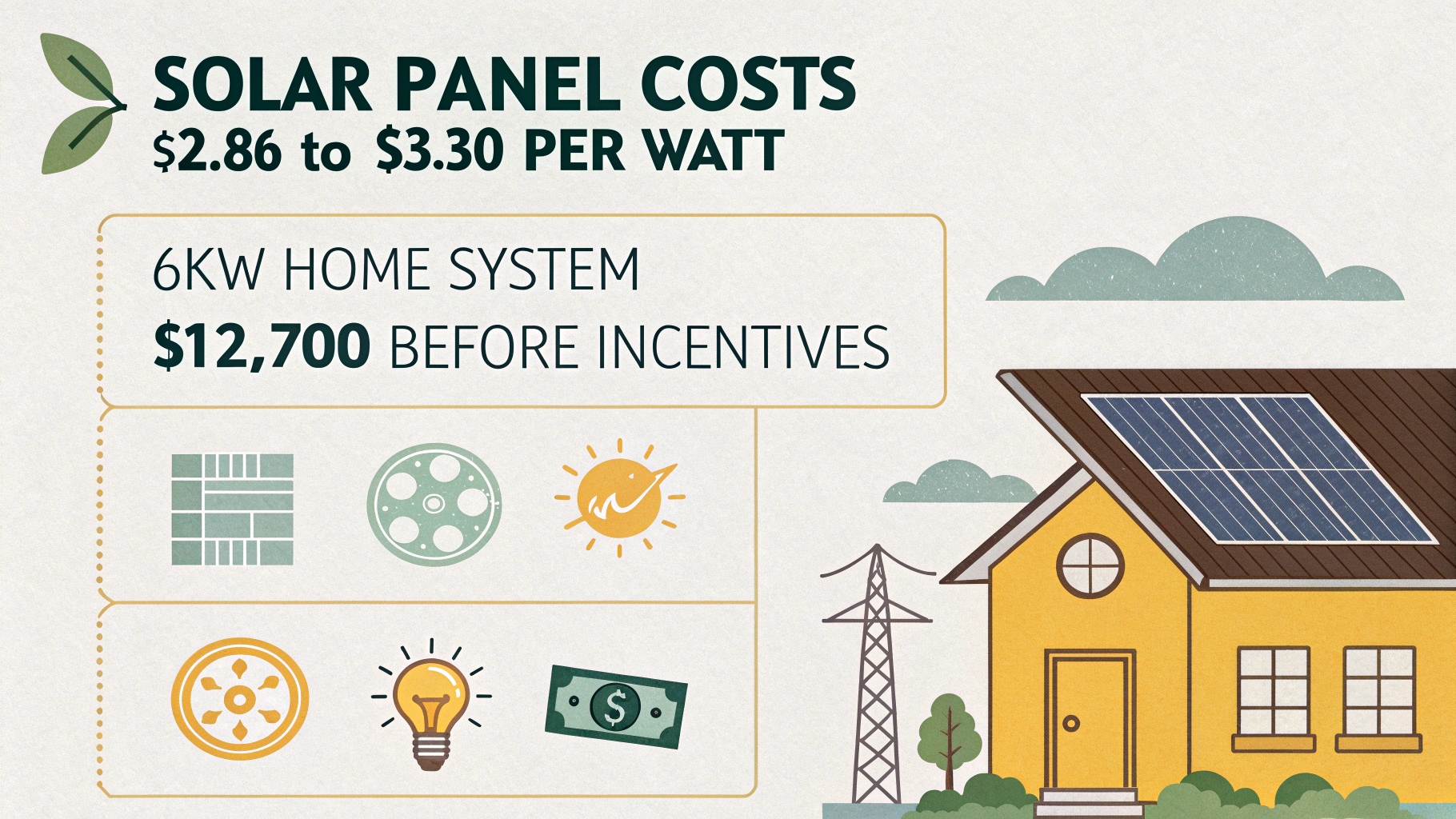
Het begrijpen van de gemiddelde kosten is een goed startpunt. Maar u heeft waarschijnlijk meer specifieke vragen over wat er in die prijs zit en wat zinvol is jouw situatie. Laten we wat dieper ingaan op de details.
Wat zijn de gemiddelde kosten van zonnepanelen?
Hoge energiekosten zijn een aanslag op uw budget? Vraagt u zich af of zonne-energie daadwerkelijk betaalbaar voor u is? Laten we eens goed kijken naar de gemiddelde cijfers die we in de sector zien.
De gemiddelde kosten voor zonnepanelen liggen hier tussen $2.86 En $3.30 per watt 12. Deze prijs is meestal inclusief de hardware, de installatiearbeid, en benodigde vergunningen. Bijvoorbeeld, een systeem van 6 kW is gemiddeld ongeveer $12,700 3. Een groter systeem van 10 kW kan ongeveer kosten $20,020 na federale belastingkredieten 2.
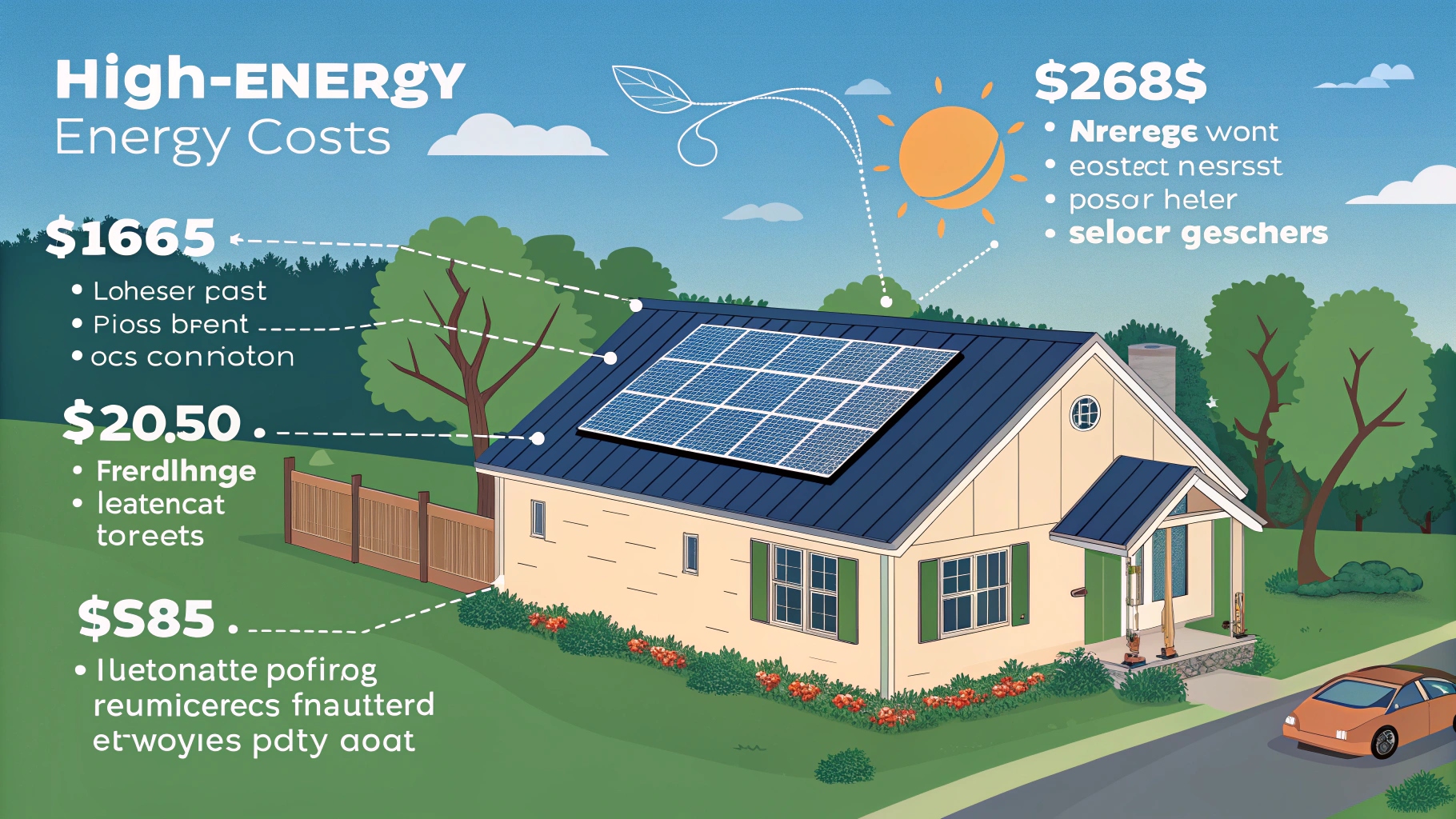
De kosten per watt zijn een standaardmanier om prijzen te vergelijken in de zonne-energiesector. Maar het is belangrijk om te weten wat er achter dat getal zit. Het zijn niet alleen de panelen zelf.
Wat is inbegrepen in de kosten?
De totaalprijs omvat verschillende dingen. Eerst, daar is de hardware: de zonnepanelen4,【de omvormer】 (die zonne-energie omzet in bruikbare elektriciteit), en het montagesysteem waarmee de panelen op uw dak worden bevestigd. Seconde, daar is de arbeid voor installatie5. Hiervoor zijn bekwame technici nodig die ervoor zorgen dat alles veilig en correct wordt opgezet. Derde, er zijn "zachte kosten." Denk hierbij aan zaken als vergunningen, keuringskosten, en de operationele kosten van het bedrijf. Bij het uitbrengen van een offerte houden wij hier rekening mee.
Factoren die de gemiddelde kosten beïnvloeden
De gemiddelde kosten staan niet vast omdat elk project anders is 5. Uw specifieke locatie is van belang omdat de zonneschijnniveaus variëren 2. Ook het merk en de kwaliteit van de panelen die u kiest spelen een grote rol. Wij werken samen met topmerken zoals Longi, Trina, en Jinko omdat kwaliteit de prestaties op de lange termijn beïnvloedt. De grootte van uw systeem, bepaald door uw energiebehoefte, is een andere belangrijke factor. Eindelijk, beschikbaar belastingkredieten6 en lokale incentives kunnen uw nettokosten aanzienlijk verlagen 5.
Hier volgt een kort overzicht van hoe de systeemgrootte de geschatte kosten kan beïnvloeden voor stimulansen:
| Systeemgrootte (kW) | Geschatte kostenbereik ($/watt) | Geschat totaal kostenbereik ($) |
|---|---|---|
| 6 kW | $2.86 - $3.30 | $17,160 - $19,800 |
| 10 kW | $2.86 - $3.30 | $28,600 - $33,000 |
| 15 kW | $2.86 - $3.30 | $42,900 - $49,500 |
(Opmerking: Dit zijn schattingen. Uw werkelijke kosten zijn afhankelijk van specifieke factoren.)
Wat is de redelijke prijs voor zonnepanelen??
U voelt zich verward door de verschillende offertes voor zonne-energie die u heeft ontvangen? U wilt er zeker van zijn dat u een eerlijke prijs betaalt voor een goede prijs? Laten we definiëren wat ‘redelijk’ is" betekent echt in zonne-energie.
Een redelijke prijs is niet alleen het laagste getal. Het weerspiegelt het gebruik van hoogwaardige componenten (zoals Tier-1-panelen), deskundige installatie, sterke garanties, en de verwachte energie-output van het systeem, afgestemd op jouw specifieke behoeften en locatie 17. Het gaat om de langetermijnwaarde.
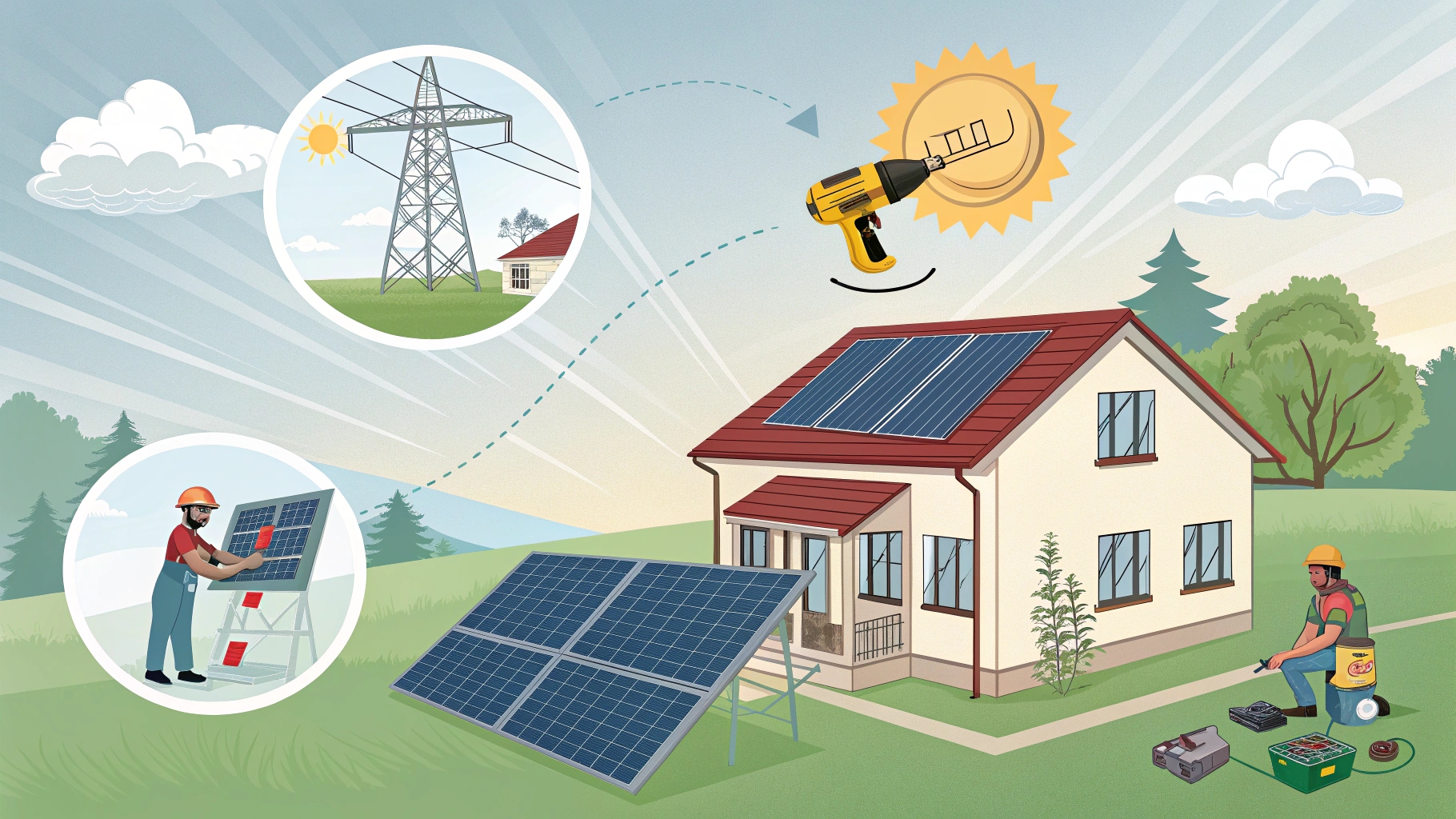
Toen ik voor het eerst in dit bedrijf begon, Ik zag dat mensen zich alleen concentreerden op de initiële kosten. Maar het kiezen van de goedkoopste optie kan later soms tot problemen leiden. Een redelijke prijs balanceert kosten met kwaliteit en betrouwbaarheid.
Voorbij het prijskaartje vooraf
Denk eens aan de genivelleerde energiekosten (LCOE). Dit meet de totale kosten van het systeem gedurende zijn levensduur, gedeeld door de totale energie die het naar verwachting zal produceren. Een systeem met iets hogere initiële kosten, maar met een beter gebruik, efficiëntere panelen (zoals de Tier-1-merken die we gebruiken) en betrouwbare omvormers hebben misschien wel een lager LCOE. Dit betekent goedkopere elektriciteit voor u 25+ jaren. Goedkope panelen kunnen sneller verslechteren of eerder kapot gaan, kost je op de lange termijn meer.
Sleutelelementen van een redelijk citaat
Dus, waar moet je op letten bij een offerte om te zien of deze redelijk is? Vergelijk niet alleen de totaalprijs. Kijk naar de details. Is de installateur betrouwbaar en ervaren?? Bieden ze solide garanties op zowel de apparatuur als hun vakmanschap?? Wij staan achter onze installaties met uitgebreide ondersteuning. Een redelijke offerte geeft duidelijk aan welke componenten worden gebruikt, verwachte energieproductie, garantievoorwaarden, en de inloggegevens van het installatieprogramma.
Hier vindt u een tabel waarmee u offertes kunt vergelijken:
| Functie | Waar u op moet letten | Waarom het ertoe doet |
|---|---|---|
| Prijs per Watt ($/W) | Vergelijk met regionale gemiddelden ($2.86-$3.30) 12 | Vergelijking van basiskosten |
| Paneel merk & Laag | Tier-1-merken (Bijv., Lang, Jinko) | Hogere kwaliteit, efficiëntie, en betrouwbaarheid |
| Omvormertype & Efficiëntie | Hoge efficiëntie (>97%), bekend merk | Cruciaal voor het omzetten van zonne-energie, heeft invloed op de output |
| Garantie (Panelen) | 25+ jaar prestatiegarantie | Langetermijnbescherming voor uw investering |
| Garantie (Vakmanschap) | 10+ jaren | Dekt de installatiekwaliteit |
| Installateur ervaring | Gecertificeerd, ervaren, goede recensies | Zorgt voor een juiste installatie en ondersteuning |
Een redelijke prijs weerspiegelt de kwaliteit op al deze gebieden, zodat uw systeem tientallen jaren goed presteert.
Zijn zonnepanelen het geld waard??
Ik denk erover om over te stappen op zonne-energie, maar maak me zorgen over de initiële investering? Zal het u daadwerkelijk geld besparen en uiteindelijk resultaat opleveren?? Laten we de financiële voordelen afwegen.
Ja, In de meeste gevallen, zonnepanelen zijn zeker het geld waard 8. Ze kunnen uw maandelijkse elektriciteitsrekening aanzienlijk verlagen of zelfs elimineren, u in aanmerking komen voor waardevolle belastingvoordelen en incentives, verhoog de waarde van uw huis, en geven u energieonafhankelijkheid 83.
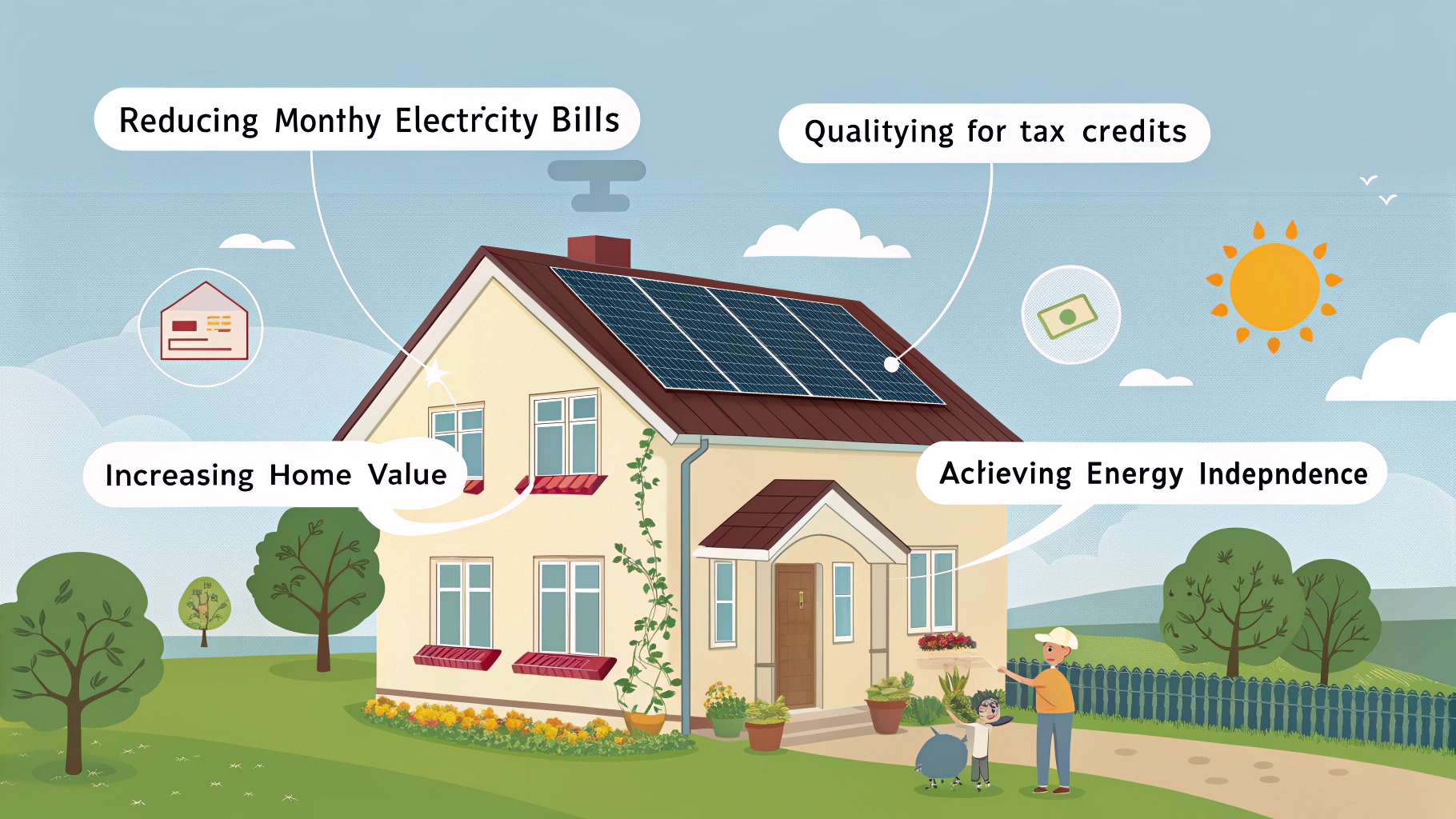
Ik spreek elke dag met huiseigenaren en bedrijfseigenaren die blij zijn met hun beslissing om over te stappen op zonne-energie. Eén klant, Michaël R. in de VS, vertelde me dat zijn spaargeld zelfs beter was dan verwacht. De sleutel is het begrijpen van het financiële plaatje op de lange termijn.
Uw rendement op uw investering berekenen (ROI)
Het grootste financiële voordeel is het verlagen van uw elektriciteitskosten 8. Afhankelijk van uw systeemgrootte en energieverbruik, u kunt elk jaar honderden of zelfs duizenden dollars besparen. Dan zijn er prikkels. De federale overheid biedt een aanzienlijk investeringsbelastingkrediet aan (ITC), waarmee u momenteel kunt aftrekken 30% van de systeemkosten uit uw federale belastingen 2. Veel staten en lokale nutsbedrijven bieden extra kortingen of tegoeden 3. Deze prikkels verkorten de terugverdientijd drastisch: de tijd die het systeem nodig heeft om zichzelf terug te betalen door middel van besparingen. Vaak, Dit is tussen 5 naar 10 jaren. Daarna, de energie is vrijwel gratis.
Niet-financiële voordelen
Naast de directe besparingen, zonnepanelen voegen waarde toe. Uit onderzoek is gebleken dat huizen met zonnepanelen sneller en tegen hogere prijzen worden verkocht 8. U krijgt ook energieonafhankelijkheid. Wanneer het elektriciteitsnet problemen heeft, of de elektriciteitsprijzen stijgen, uw energiebron blijft stabiel en voorspelbaar. En laten we de impact op het milieu niet vergeten. Door gebruik te maken van schone zonne-energie, U vermindert uw CO2 -voetafdruk, bijdragen aan een gezondere planeet 8. Voor bedrijven, dit versterkt ook hun merkimago en helpt bij het behalen van duurzaamheidsdoelstellingen.
Hier vindt u een overzicht van de voordelen:
| Voordeelcategorie | Specifieke voordelen |
|---|---|
| Financiële besparingen | Lagere of nul elektriciteitsrekeningen; voorspelbare energiekosten |
| Stimulansen | Federaal ITC (30%), staats-/lokale kortingen 23 |
| Waarde van huis/eigendom | Verhoogde marktwaarde en sneller verkooppotentieel 8 |
| Energiezekerheid | Onafhankelijkheid van netschommelingen en prijsstijgingen 8 |
| Omgevings- | Verminderde ecologische voetafdruk; ondersteunt schone energie |
Gezien deze gecombineerde voordelen, de initiële kosten worden een slimme investering in plaats van alleen maar een kostenpost.
Hoeveel kost een zonnestelsel voor a 1500 vierkante meter huis?
Ik heb een huis in de buurt 1500 vierkante meter? Ik probeer een budget te vinden voor het plaatsen van zonnepanelen? Laten we eens schatten wat dat zou kunnen kosten.
De kosten van een zonnestelsel zijn meer afhankelijk van uw werkelijke elektriciteitsverbruik gebruik dan de vierkante meters van uw huis 2. Als uw 1500 vierkante meter huis gebruikt de gemiddelde elektriciteitshoeveelheid in de VS (rondom 10,600 kWh per jaar), Mogelijk hebt u een systeem van 6 kW tot 8 kW nodig. Dit zou ongeveer kunnen kosten $17,000 naar $27,000 voor stimulansen 23.
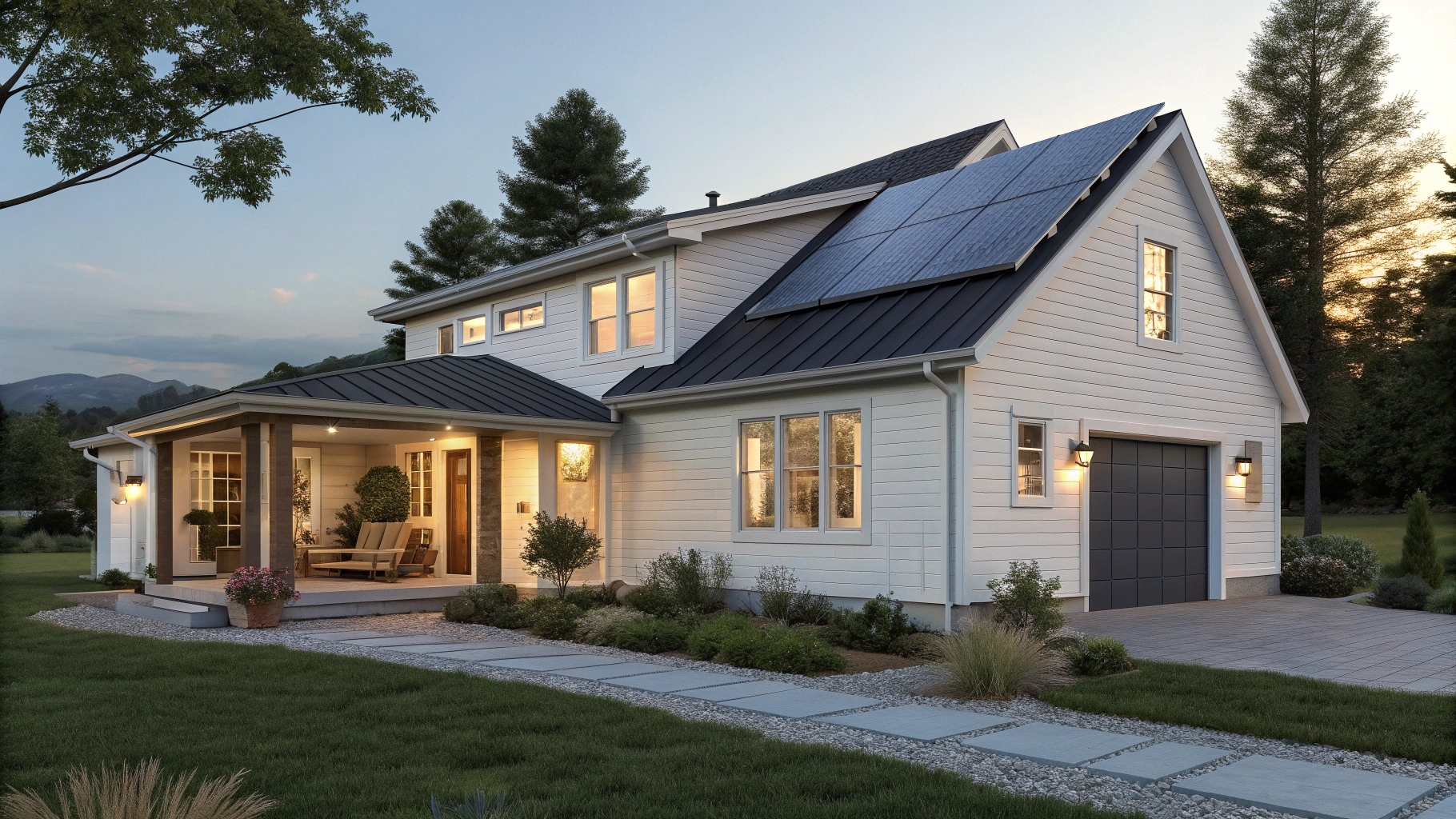
Het is een veel voorkomende vraag, maar de grootte van het huis alleen zegt ons niet genoeg. Ik heb grote huizen gezien met een laag energieverbruik en kleinere huizen met een hoog energieverbruik (misschien vanwege elektrische verwarming of een zwembad).
Waarom energieverbruik essentieel is
Denk er eens over na: zonnepanelen wekken elektriciteit op die bij u past gebruik. Een groter huis betekent niet automatisch een hoger verbruik, ook al hangt het vaak samen. Het belangrijkste getal is uw jaarlijkse kilowattuur (kWh) consumptie 2. U kunt dit vinden op uw maandelijkse elektriciteitsrekening of op de website van uw nutsbedrijf. Hiermee weten we precies hoeveel stroom uw huis gedurende een jaar nodig heeft. Vervolgens ontwerpen we een systeem om die hoeveelheid energie te produceren, rekening houdend met factoren zoals de blootstelling aan de zon van uw dak (productie verhouding) 2.
Uw systeemgrootte en -kosten schatten
Laten we de gemiddelde consumptie van Amerikaanse huishoudens gebruiken 10,632 kWh per jaar 2. Om de systeemgrootte te achterhalen (kW), we delen het jaarlijkse verbruik door de lokale productieratio (hoeveel energie 1 kW aan panelen produceert jaarlijks, typisch 1,200-1,600 kWh afhankelijk van locatie). Laten we uitgaan van een verhouding van 1,400 voor dit voorbeeld:
- Systeemgrootte = 10,632 kWh / 1,400 kWh/kW ≈ 7.6 kW
Nu, wij schatten de kosten op basis van de gemiddelde prijs per watt ($2.86 - $3.30) 12:
- Lage schatting: 7,600 W * $2.86/W = $21,736
- Hoge schatting: 7,600 W * $3.30/W = $25,080
Dit is voor de 30% federaal belastingkrediet. Na het krediet:
- Lage geschatte nettokosten: $21,736 * (1 - 0.30) = $15,215
- Hoge schatting nettokosten: $25,080 * (1 - 0.30) = $17,556
Hier is een voorbeeldtabel op basis van gebruik:
| Jaarlijks gebruik (kWh) | Oosten . Systeemgrootte (kW) (Verhouding 1400) | Oosten . Kostenbereik (Vóór ITC) | Oosten . Kostenbereik (Na 30% ITC) |
|---|---|---|---|
| 8,000 | 5.7 kW | $16,302 - $18,810 | $11,411 - $13,167 |
| 10,632 (AVG) | 7.6 kW | $21,736 - $25,080 | $15,215 - $17,556 |
| 15,000 | 10.7 kW | $30,602 - $35,310 | $21,421 - $24,717 |
Herinneren, dit zijn slechts schattingen. De beste manier om de kosten te kennen jouw 1500 vierkante meter huis is om een offerte op maat te krijgen op basis van uw werkelijke energierekeningen en een beoordeling van de locatie. Wij bieden consultaties aan om precieze cijfers te kunnen geven.
Conclusie
De kosten voor zonnepanelen variëren, maar de gemiddelden kennen ($2.86-$3.30/watt) 12 en factoren die daarbij betrokken zijn, helpen. Investeren in zonne-energie bespaart op de lange termijn geld en helpt het milieu. Ontvang een gepersonaliseerde offerte voor nauwkeurigheid.
GYCX zonne-energie. (2023, april 7). Wat zijn de gemiddelde kosten van zonnepanelen? https://gycxsolar.com/what-is-the-average-cost-of-solar-panels/ ↩ ↩ ↩ ↩ ↩ ↩
GYCX zonne-energie. Hoeveel zonnepanelen heb ik nodig voor mijn huis? https://gycxsolar.com/how-many-solar-panels-do-i-need-for-my-home/ ↩ ↩ ↩ ↩ ↩ ↩ ↩ ↩ ↩ ↩ ↩ ↩ ↩ ↩
Li, K. (2024, Maart 26). Hoe je kunt besparen op elektrische rekeningen met zonne -energie in 2024. GYCX zonne-energie. https://gycxsolar.com/how-to-save-on-electric-bills/ ↩ ↩ ↩ ↩ ↩ ↩
Door de voordelen van zonnepanelen te onderzoeken, kunt u de waarde ervan en de impact op energiebesparingen beter begrijpen. ↩
Als u het installatieproces begrijpt, weet u wat u kunt verwachten en hoe u zich kunt voorbereiden op uw zonne-energieproject. ↩ ↩ ↩
Als u meer te weten komt over de beschikbare belastingvoordelen, kunt u uw totale investering in zonne-energie aanzienlijk verminderen en de besparingen vergroten. ↩
GYCX zonne-energie. (2023, juli 7). Besparingen op zonne-energie ontgrendelen: Een uitgebreide gids voor de kosten van zonnepanelen. https://gycxsolar.com/guide-to-the-cost-of-solar-panels/ ↩
GYCX zonne-energie. Zullen zonnepanelen mij geld besparen?? https://gycxsolar.com/will-solar-panels-save-me-money/ ↩ ↩ ↩ ↩ ↩ ↩ ↩
